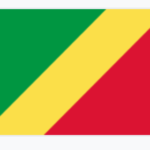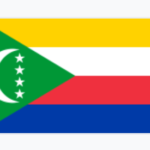The Democratic Republic of the Congo (DRC) is a vast and diverse country in Central Africa. It is the second-largest country in Africa by land area, after Algeria, and the 11th-largest in the world. It has a population of about 112 million people, making it the most populous officially Francophone country in the world. The capital and largest city is Kinshasa, which is also the economic and cultural hub of the country.
The DRC has a rich and complex history, marked by colonialism, independence, dictatorship, civil wars, and humanitarian crises. The country was colonized by Belgium in the late 19th century and became known as the Congo Free State under the brutal rule of King Leopold II, who exploited the natural resources and enslaved the local population. In 1908, the Congo Free State was annexed by Belgium and renamed the Belgian Congo. In 1960, the country gained its independence from Belgium and became known as the Republic of the Congo, with Patrice Lumumba as its first prime minister. However, Lumumba was soon assassinated in a coup d’état orchestrated by Belgium and the United States, and Mobutu Sese Seko seized power and established a one-party dictatorship that lasted for more than three decades. In 1971, Mobutu changed the name of the country to Zaire and promoted a nationalist ideology of “authenticity”. In 1996, a rebel movement backed by Rwanda and Uganda launched a war against Mobutu’s regime, which led to his overthrow in 1997 and the installation of Laurent-Désiré Kabila as president. Kabila renamed the country the Democratic Republic of the Congo (DRC), but in 1998 his regime faced another rebellion supported by Rwanda and Uganda, which triggered a regional conflict that involved several African countries and claimed millions of lives. The war officially ended in 2003 with a peace agreement that established a transitional government and paved the way for elections. In 2006, Joseph Kabila, son of Laurent-Désiré Kabila who was assassinated in 2001, won the first democratic presidential election in the DRC. He was reelected in 2011 in a disputed vote that sparked protests and violence. In 2018, after years of delays and tensions, Felix Tshisekedi won the presidential election and became the first opposition leader to take power peacefully in the DRC.
The DRC is endowed with abundant natural resources, including minerals, forests, wildlife, waterways, and fertile land. It has the world’s largest reserves of cobalt and significant quantities of diamonds, gold, copper, tin, coltan, and other minerals that are essential for various industries. It also has the second-largest rainforest in the world after the Amazon, which hosts a rich biodiversity of flora and fauna. The Congo River is the second-longest river in Africa and the deepest in the world, with a potential to generate hydroelectric power for the entire continent. However, despite its natural wealth, the DRC remains one of the poorest and most underdeveloped countries in the world. It ranks low on human development indicators such as life expectancy, education, health, sanitation, and gender equality. It faces multiple challenges such as political instability, corruption, insecurity, armed groups, human rights violations, displacement, poverty, hunger, disease outbreaks (including Ebola), environmental degradation, and climate change.
The DRC is a multiethnic and multicultural country with over 200 ethnic groups and four national languages: French (the official language), Lingala (spoken in Kinshasa and western regions), Swahili (spoken in eastern regions), and Tshiluba (spoken in central regions). The country also has a vibrant cultural scene that reflects its diversity and creativity. The DRC is known for its music genres such as rumba, soukous.








